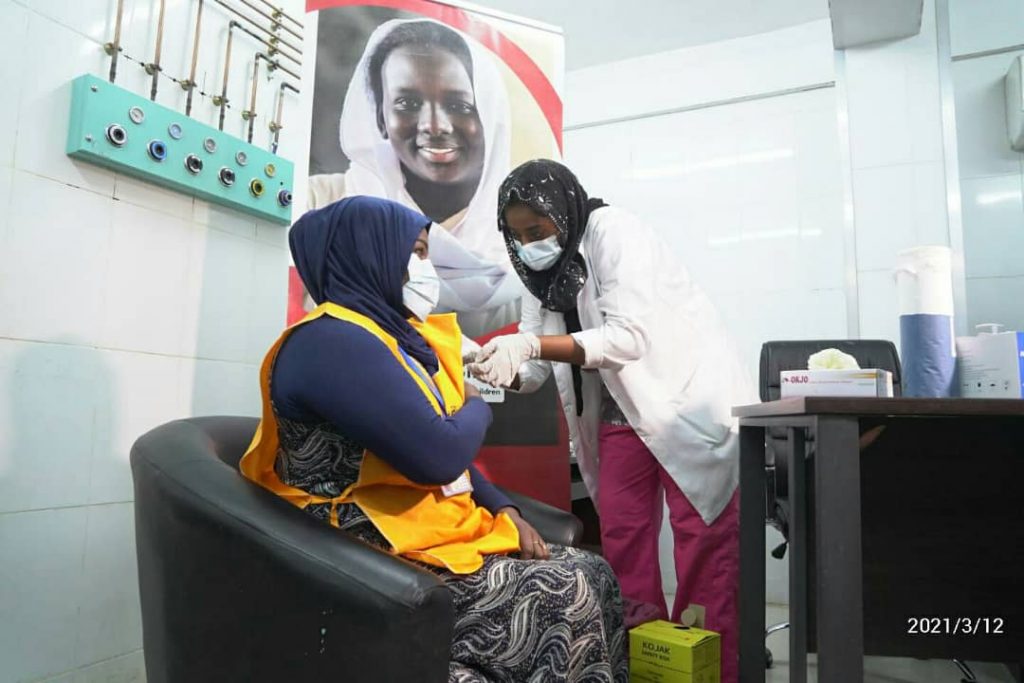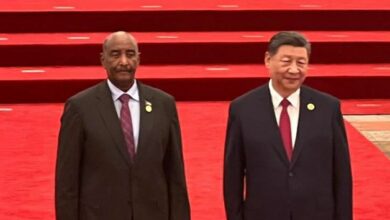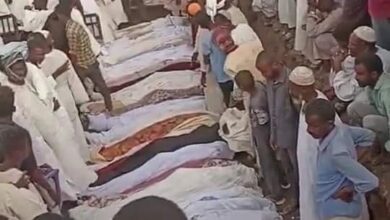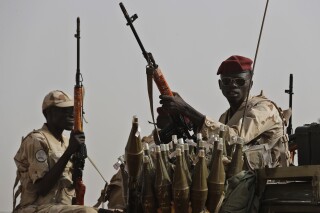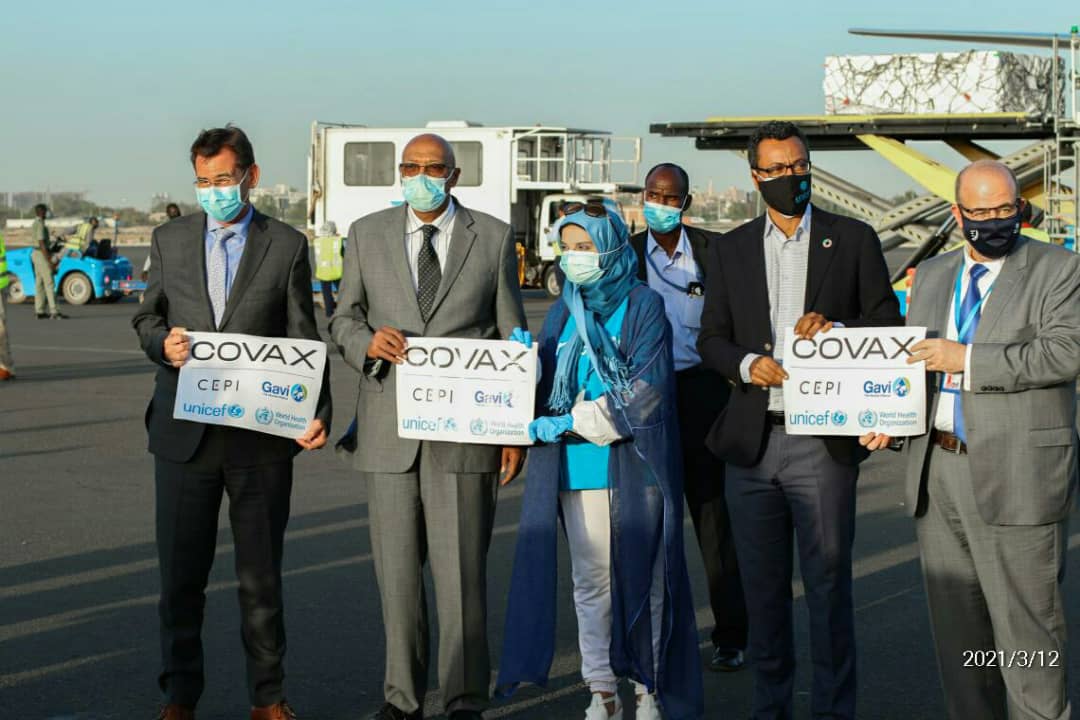
Sudan Receives First Delivery of COVID-19 Vaccines with Over 800,000 Doses

Haffiya Abdalla – Khartoum
Sudan is the first country in the Middle East and North Africa (MENA) region to receive vaccines against COVID-19 following the arrival of over 800, 000 doses of the AstraZeneca vaccine at the Khartoum.
The vaccines were delivered with UNICEF’s support through COVAX, a coalition co-led by the World Health Organization (WHO), Gavi, and the Vaccines Alliance and the Coalition for Epidemic Preparedness Innovations (CEPI), which ensures equitable distribution of COVID-19 vaccines to countries regardless of their income.
The initial consignment of vaccines received will support the vaccination of health care workers and people above 45 with chronic medical conditions living in areas with high transmission or anticipated high transmission, marking the first phase of the nationwide vaccination campaign.
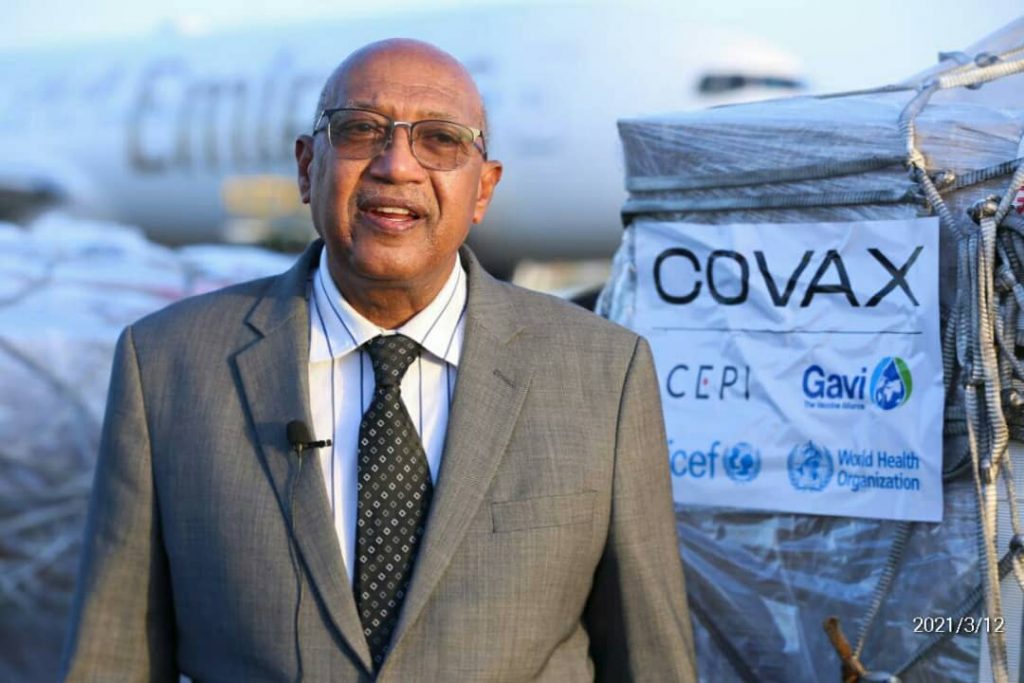
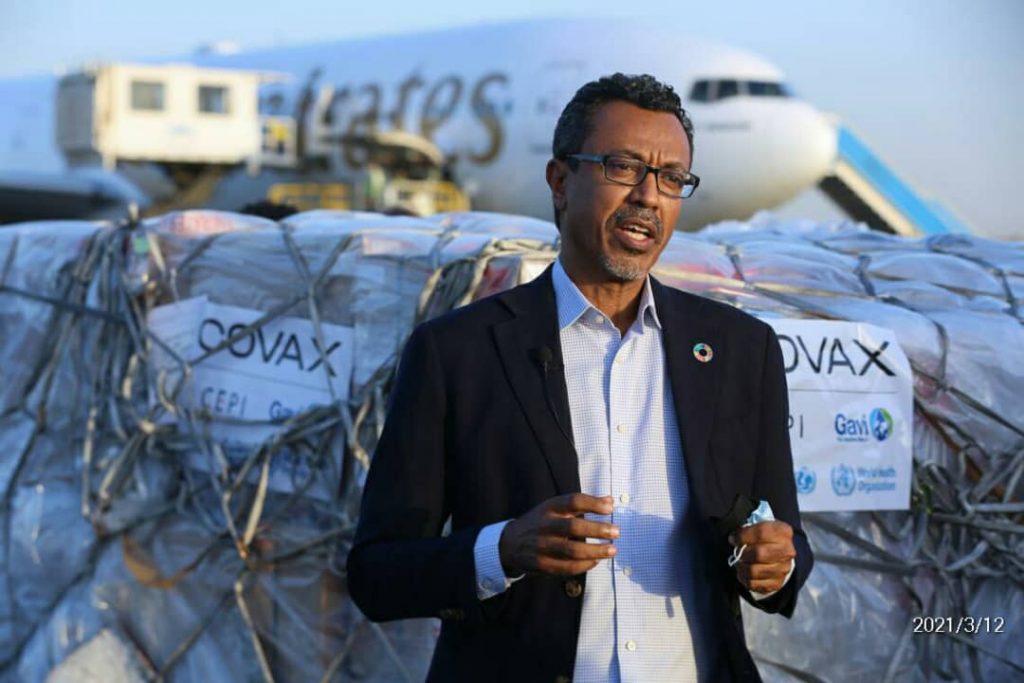
Equal Opportunity
The Federal Ministry of Health warned of such a third wave, noting an increase in respiratory diseases and suspected COVID cases.
It is worth noting that Sudan has registered nearly 29,000 cases of coronavirus since the beginning of the pandemic last year, with just over 1,900 deaths.
Sudan received an initial 820,000 vaccine doses recently. The country will eventually receive 3.4 million doses provided through the COVAX program.
Dr Omer Mohamed Elnagieb, Sudan’s Minister of Health, expressed appreciation of all partners who worked together for Sudan to become the first country across the region to receive vaccines against COVID-19 through the COVAX Facility.
“The vaccines are a critical part of controlling the spread of the virus in Sudan and eventually return to normalcy,” said Dr Omer Mohamed Elnagieb. He urged those eligible to register and get vaccinated as soon as they get an appointment.
“This is great news. Through the COVAX Facility, Gavi ensures that all countries have an equal opportunity to access these life-saving vaccines. We continue to work towards leaving no one behind with immunization,” said Jamilya Sherova, Senior Country Manager for Sudan at Gavi, the Vaccine Alliance.
“Our hope in recovery from the pandemic is through the vaccines,” Abdullah Fadil, Representative of UNICEF Sudan, affirmed. “Vaccines have reduced the scourge of numerous infectious diseases, saved millions of lives and have effectively eliminated many life-threatening diseases,” he continued.
According to UNICEF, as countries around the world get ready to receive COVID-19 vaccines and plan roll out campaigns to reach all eligible persons, the largest vaccine procurement and supply operation ever is underway – and UNICEF is leading it on behalf of the Global COVAX Facility.
UNICEF is working to ensure that all countries participating in the Facility (currently 190 including Sudan) have equitable access to 2 billion doses of the COVID-19 vaccine by the end of 2021.
Dr Nima Saeed Abid, WHO Representative in Sudan, confirmed that the vaccines received today are safe and have been approved through WHO’s Emergency Use Listing Procedure for use in Sudan and other countries.
He applauded the Government of Sudan, the Federal Ministry of Health and partners for the great milestone that will ensure the people of Sudan are protected from the deadly disease that continues to spread.
“The World Health Organization is pleased to be part of this milestone for the COVID-19 response in Sudan. Vaccines work and vaccines should be for all,” stressed Dr Nima.
“But we should always remember that vaccinations only work as part of a comprehensive approach – they are only one tool in our arsenal against the virus and are most effective when combined with all other public
Is the COVID-19 Vaccine Safe?
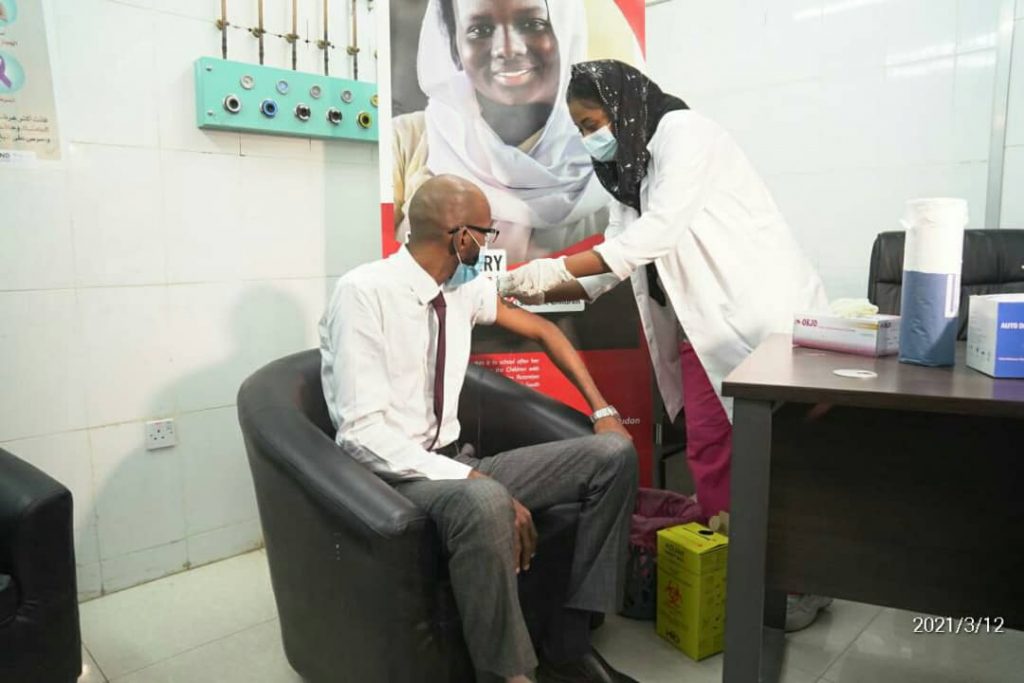
The vaccine is safe and has been approved by the World Health Organisation (WHO).
Globally, the WHO coordinates several independent technical bodies that review the safety of vaccines prior to and even after they have been introduced. Vaccines that are approved for use by the WHO have gone through rigorous tests and clinical trials to show that they are safe and effective in controlling diseases.
Even though COVID-19 vaccines are being developed as rapidly as possible, they can only receive the required regulatory approvals if they meet stringent safety and efficacy standards.
As most other vaccines, a person vaccinated against COVID-19 will experience some minor symptoms associated with the vaccination. These include injection site local pain and irritation and minor flue like symptoms which resolve within a few days.
‘A very Big Step’
Dr. Hanana Mohamed, who has been treating COVID patients in Sudanese hospitals, says all of the front-line doctors, nurses and workers are in danger of getting infected with COVID. She called the start of vaccination ‘a very big step’ in her country’s efforts to defeat the coronavirus.
Another physician, Dr. Abeer Othman, thinks the vaccine will give health care workers a much-needed lift.
She says the vaccination campaign is encouraging for front-line workers, especially those in isolation centers after suffering for a long time struggling with the coronavirus.
The vaccine, she said, will motivate health care workers to defeat increasing number of cases that seem to be indicative of a third wave spreading in the country.
The Government’s Plans
The Government categorized eligible persons into several groups and vaccination is planned in two phases.
Phase one will cover 3 per cent of the target population – all frontline health workers – in private and public health facilities and persons aged 45 years and above with chronic illnesses and residing in states with high transmission rates.
The second phase will cater to 17 per cent of the eligible population – persons aged 45 years and above in the other states and other essential workers like schoolteachers, bankers plus refugees and internally displaced people.
